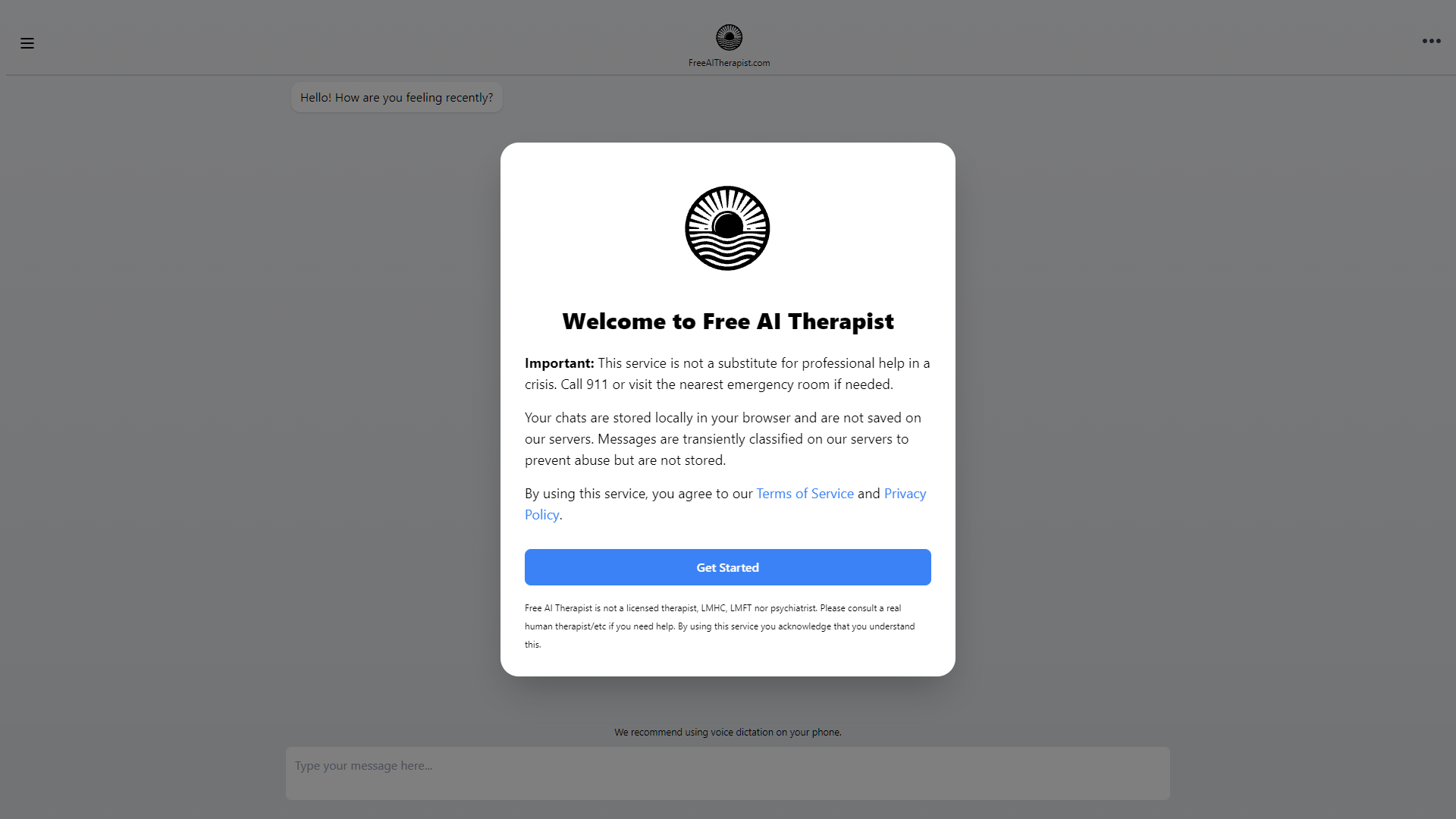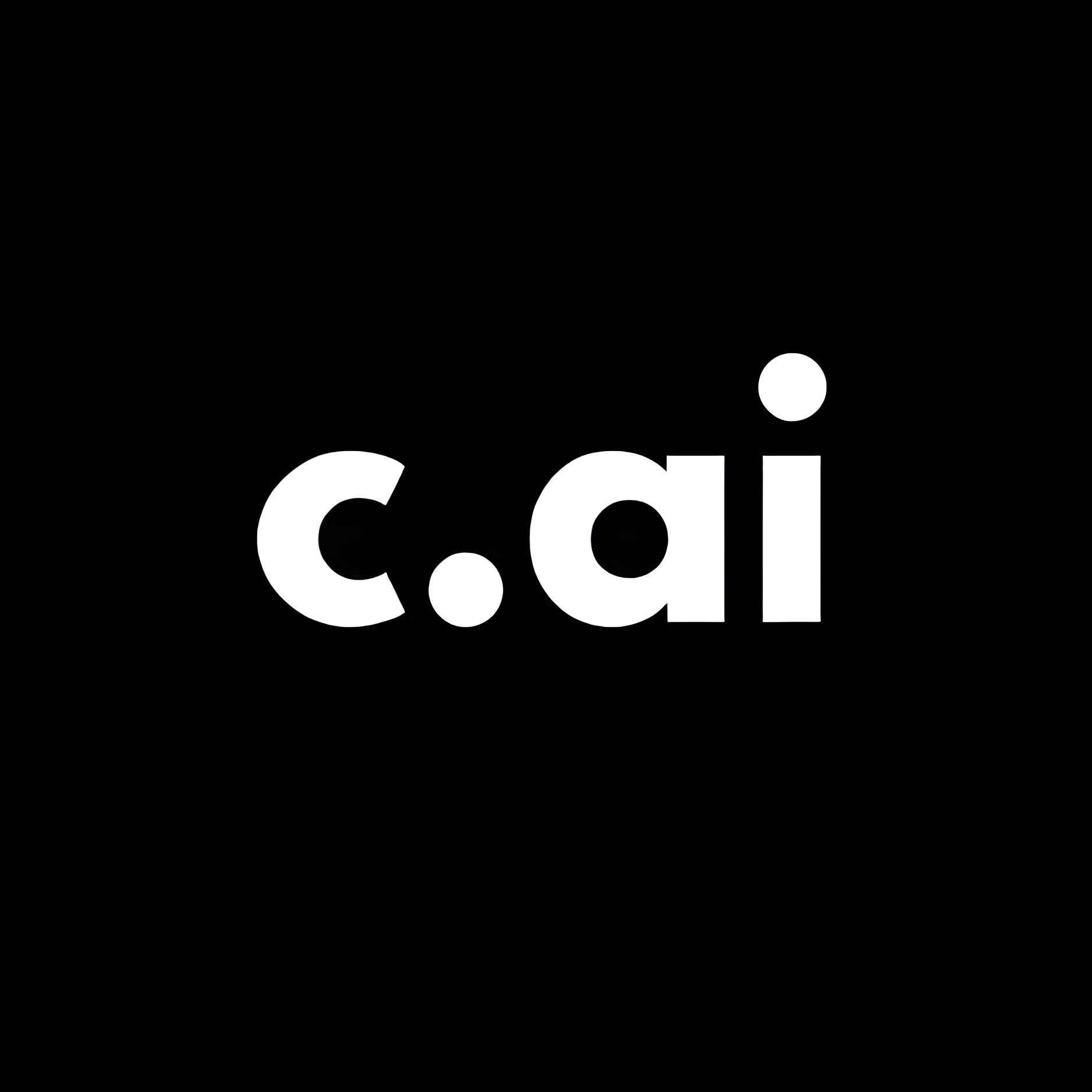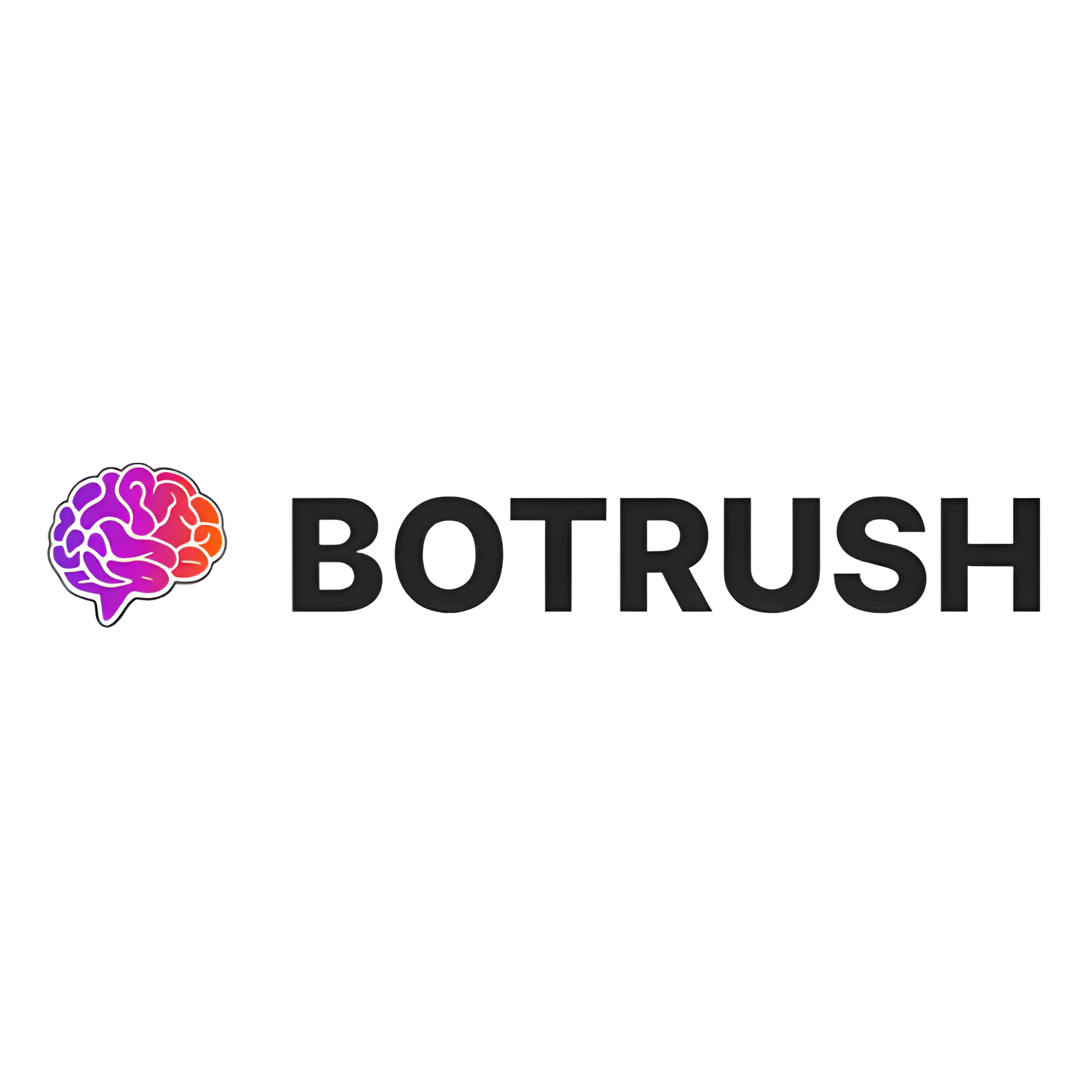Overview
Free AI Therapist is an innovative online platform designed to offer users a space to express their emotions and thoughts through AI-driven conversations. This tool is particularly useful for individuals seeking a quick outlet or preliminary support, emphasizing that it does not replace professional psychological services. Users are advised to seek immediate professional help in crisis situations.
The service operates with a high regard for privacy and security. Conversations are stored locally on the user's device rather than on any external servers, ensuring that personal discussions remain private. To maintain a safe environment and prevent misuse, messages are briefly analyzed on the servers for classification purposes but are not retained afterwards.
Before accessing the chat feature, users must accept the Terms of Service and Privacy Policy, which outline the usage guidelines and limitations of the AI tool. It's important to note that Free AI Therapist is not a certified mental health service and does not offer licensed therapy or psychiatric evaluations. For a more interactive experience, the website recommends using voice dictation features available on smartphones.
Free AI Therapist serves as a preliminary step for those exploring their emotional well-being, providing a non-judgmental, instantly accessible platform for personal reflection.
Key features
- Local data storage: User chats are stored locally in the browser, ensuring privacy and control over personal data.
- Temporary server classification: Messages are briefly analyzed on servers to prevent abuse but are not permanently stored to protect privacy.
- Emergency advice disclaimer: The tool advises users to seek professional help in emergencies, emphasizing it's not a crisis service.
- Non-professional AI: Clearly states it is not a substitute for licensed mental health professionals and encourages consulting real therapists.
- Terms of service agreement: Users must agree to the Terms of Service and Privacy Policy before using the chat service.
- Voice dictation feature: Suggests using voice dictation for a more seamless and engaging user experience.
 Pros
Pros
- Anonymous user profiles: Users can interact with the service without revealing personal identity, enhancing privacy and comfort in sharing sensitive information.
- Interactive chat interface: The tool features a user-friendly and engaging chat interface, making it easy for users to express themselves and navigate conversations.
- 24/7 availability: Accessible at any time, providing users with constant support whenever they need to talk or seek advice, without time constraints.
- AI learning capabilities: Continuously improves responses through machine learning, ensuring more accurate and helpful interactions over time.
- Multi-language support: Offers services in multiple languages, making it accessible to a broader audience who may not be native English speakers.
 Cons
Cons
- Dependent on connectivity: The tool requires a stable internet connection to analyze messages on servers, which may limit accessibility in low connectivity areas.
- Limited emotional depth: As a non-professional AI, it may not fully understand or appropriately respond to complex emotional states or nuances in conversation.
- Data loss risk: Since chats are stored locally, there's a risk of data loss if the browser data is cleared or the device is compromised.
- No real-time intervention: The tool cannot provide real-time crisis intervention or emergency services, which might be crucial during acute mental health episodes.
- Voice dictation variability: The effectiveness of the voice dictation feature can vary widely depending on the user's accent, speech clarity, and background noise.

















